The description of the different projects is presented at three different times:
First Stage (1994-1998)
School Assistance Program
The first of the projects carried out by INEPAS was called the School Assistance Program, aimed at solving learning problems and low school performance, as well as giving attention to the psychological problems of boys and girls from various public schools in Quetzaltenango.
Sébastien: providing academic support with dedication and tenderness (1994)
Training Program
The second project was called the Training Program and consisted in giving educational talks at a public night school for young people. It was intended to provide guidance on various social problems such as drug addiction, HIV AIDS and clandestine emigration to the United States, etc. This project was carried out for two years, during which two orientation talks a week were given to a group of 50 young people and given by teachers and trained students from INEPAS who voluntarily carried out this work.
Mynor and José: young people engaging in thoughtful dialogue about the risks and realities of undocumented migration to the United States of America (1994).
INEPAS Mixed Rural Community School, Choquiac
The third project carried out by the association consisted in the founding and administration of the INEPAS Mixed Rural Community School, in the Mayan-K’iché community of Choquiac, municipality of Cantel, Quetzaltenango, where community self-management was promoted, the necessary funds to pay teachers were obtained and support was provided for the purchase of land for the construction of the school building.
The success of the work carried out in the community of Choquiac, received the benefit of being considered by the United Nations Educational, Scientific and Cultural Organization -UNESCO- of Paris as an innovative educational project and model for other organizations that carry out similar projects. For this reason, this institution financed the production of a documentary video on the Choquiac School that has been translated into various languages and distributed to more than 156 countries.
Local Crafts Program
Each Knot, a Story: Weaving Opportunities
In October 1996, INEPAS launched its fourth project with the goal of strengthening the skills and capacities of the women of Choquiac, promoting their economic autonomy through the art of handmade crafts.
This initiative, known as the Local Handicrafts Program, lasted nearly two years and brought significant economic benefits to numerous families. The objective was achieved through training workshops that allowed participants to develop new artisan skills, introducing techniques such as macramé—a practice brought into the community.
Macramé thus became a tool for expression, personal growth, and community transformation.
Beyond the craft itself, this project became the starting point for something much deeper: fostering the active participation of women in the collective construction of the Choquiac community school.
What began as a creative activity transformed into a space for gathering, decision-making, and action. Through macramé, many women found a voice, a support network, and a reason to engage in the processes of change within their community.
By creating with their hands, these women also wove new possibilities—for themselves, for their families, and for the entire community of Choquiac.
In doing so, they paved the way for the construction of their community school: a living symbol of organization, hope, and a shared future.
Second Stage (1999-2024)
The programs that were implemented in this second time were the following:
Education Support Program
The Education Support Program was introduced in 1994, and was one of the main social aid programs of INEPAS. This program was created in light of the (still current) serious socio-economic limitations of the Guatemalan educational system, which cannot meet the basic educational needs of the population. Only 55% of children in Guatemala attend primary school of which only 19.5% go on to receive secondary education. Illiteracy in rural areas is still an overwhelming reality. Instead of continuing with their studies, a child of twelve usually begins a life of work, helping in the house or in the fields. Although many families would like their children to have an education, they simply cannot afford it: a child’s income from labour is essential to the family’s economy.
Objective:
To give educational support to children, teenagers and adults who were either having problems learning in school or had no access to education whatsoever.
Contents of Program:
The Education Support Program had carried out a variety of different activities and programs including: tutoring classes for children and teenagers with learning difficulties, a night school for teenagers who worked during the day, and the initiation of a self-sustainable rural school in a Maya-K’iché community. Later, this program was divided into two projects:
Scholarship Project
In an attempt to reduce the number of teenagers that either dropped out of or did not attend school, INEPAS provided scholarships to selected students. Foreign citizens were invited to sponsor school students that came from families of scarce economical resources in the rural communities of Quetzaltenango. The sponsor´s financial contribution secured a teenager’s secondary education or enabled an older student to receive further education.
The role of INEPAS in this project was not limited to distributing sponsor money and maintaining contact between sponsor and student. INEPAS mentored the group of young people, complementing their education with workshops and activities which helped them:
- In their personal development, dealing with themes such as self-esteem. Some of these young people had suffered the abandonment of a father or mother, or had lived with the experience of domestic violence.
- In their social behaviour, dealing with various themes.
- In their studies, with workshops on motivation, spelling, reading, and themes of social, cultural and political interest.
- Once a month, whole-day or whole-afternoon sessions were organized with the young people. These sessions were directed by María Antonieta, who was sometimes accompanied by national or international volunteers.
Lectures: a deep look at the historical processes that have shaped the political life of our societies (2002–2012).
Computer Laboratory Project
Starting in 2003, the most recent project of the Education Support Program was the implementation of 31 Computer Laboratories, located in 30 rural communities around Quetzaltenango. The installation of the Computer Laboratories was carried out in collaboration with a Non-Governmental Organization based in Oregon, USA, called Compañeros en Solidaridad.
Each IT Lab had 30 to 35 computers, which were located in public rural schools. This program had benefited more than 6000 students.
The Computer Laboratory Project was created with 3 main objectives:
- To facilitate the access to technology and training in the most important aspects of computing by the children and young people of rural areas, with the aim of closing the digital gap.
- To use the laboratories to motivate students to attend school and learn, thus reducing the rates of school absenteeism and desertion.
- To train teachers in technical maintenance of the hardware and provide working knowledge of the software.
Nursery Support Program
In 2001, INEPAS began to support various Community Nurseries (Hogares Comunitarios) in the region of Quetzaltenango.
The majority of children in rural areas did not have access to primary education for economic reasons: it was not provided free of charge by the State. The Hogares Comunitarios came into existence as an affordable alternative to primary school and a place where children from one to seven years of age could be cared for during the day, while their parents were working.
Each Hogar Comunitario was located in a private rural home. In most cases, the mother of this home became the Primary Carer of the children. She was responsible for looking after 10-12 children from Monday to Friday. Although the government covered all running costs of the home (food, water, gas etc.), she received very little salary for her work.
Objective:
To support the improvement of conditions in the Hogares Comunitarios.
Contents of Program:
INEPAS provided:
- The professional advice of psychologists, social workers, doctors, education experts and solicitors.
- Essential teaching and medical materials.
- Volunteers to work in the Nurseries, for example as teachers, social workers or doctors.
- INEPAS also arranged meetings and workshops for the parents of the children on the responsibilities of parenthood, covering issues such as good behaviour and the importance of hygiene.
Third Stage (2015-2025)
2015- 2019
The experience gained through the development of its various programs and projects not only enabled INEPAS to strengthen its knowledge and continuously improve its working strategies, but also to consolidate its capacity to provide effective and sustainable responses to community needs.
On this path, INEPAS understood that the evolution and impact of its work depended largely on its ability to innovate and adapt to new realities. For this reason, it considered it essential to create proposals that not only addressed present-day challenges, but also anticipated and responded to the social, cultural, and economic changes affecting communities.
With this purpose in mind, and from a creative and renewed perspective, starting in 2015 INEPAS incorporated into its objectives the implementation of an evaluation project on the work carried out since its founding in 1994. The project consisted of conducting a detailed retrospection on INEPAS’s trajectory, analyzing each stage of its evolution and identifying the most significant moments in its development. It also involved reflection on the motivations, dreams, emotions, and reasons that inspired its creation, as well as the challenges faced over time and the impact generated in the communities.
The process revolved around two central questions:
- To what extent have the proposals, decisions, objectives, and actions implemented since 1994 —originally aimed at solving specific problems, primarily in indigenous Maya communities that, due to historical processes of exclusion and social marginalization, had been relegated to a situation of inequality and economic poverty— succeeded in creating real opportunities for economic, social, cultural, and political development in the communities served?
- What actions can encourage communities to keep their cultural heritage alive, and how can we strengthen human development, both individual and collective, so that young people can access, under better conditions, processes of reaffirmation of Maya culture and identity?
The answers to this second question emerged from a broad and participatory process. Meetings were held with community leaders —both civil and spiritual—, guardians of ancestral knowledge, and individuals committed to collective well-being. In these spaces of deep dialogue, reflections emerged that traverse the history, culture, struggles, and resistance of the Maya peoples, who, despite centuries of exclusion, have safeguarded their identity with dignity and wisdom.
Based on these reflections, and given the complexity of the analysis, the exercise evolved into a doctoral research project. This research became an essential part of the institutional strategy and served to define new lines of action. Thus were born projects aimed at strengthening the social impact of INEPAS and expanding its presence in the communities, always guided by a renewed commitment.
These initiatives marked the conclusion of 2019, in the context of the commemoration of the 25th ANNIVERSARY OF INEPAS, a significant milestone that celebrated a quarter century of committed work in favor of education, social participation, and the promotion of human rights. This celebration was not only a moment to recognize its journey, but also an opportunity to renew energy, project collective dreams, and reaffirm its deep bond with the communities.
2020-2025
Our aspiration was to begin the year 2020 with a new stage of institutional growth, implementing new projects that would respond to the emerging needs of the communities and strengthen processes of education and social transformation. An ambitious and hopeful roadmap had been drawn.
However, the outbreak of the COVID-19 pandemic at the beginning of 2020 represented an unexpected and challenging turning point for the institution. INEPAS was confronted with a severe financial crisis due to national and international health restrictions, including the closure of borders for more than two years.
These measures, although necessary to protect public health, had a particularly severe impact on INEPAS, as its main source of income —the Spanish as a second language program, closely linked to solidarity tourism— was practically brought to a halt. The drastic reduction in foreign students not only affected the maintenance of institutional infrastructure, but also seriously limited the ability to continue and expand social programs.
Nevertheless, in the midst of this adversity, all efforts were channeled toward sustaining the mission of INEPAS, seeking new creative and sustainable approaches. Among the actions undertaken, the following stand out:
- The search for and evaluation of educational platforms to expand our online offerings.
- The setup of a digital platform for Spanish language instruction.
- The creation of a fundraising campaign through GoFundMe
- The development of new digital tools to strengthen institutional management.
- The design of a key project for 2025: the Diploma in Teaching Spanish as a Second Language, a proposal that reinforces our educational mission and opens new opportunities.
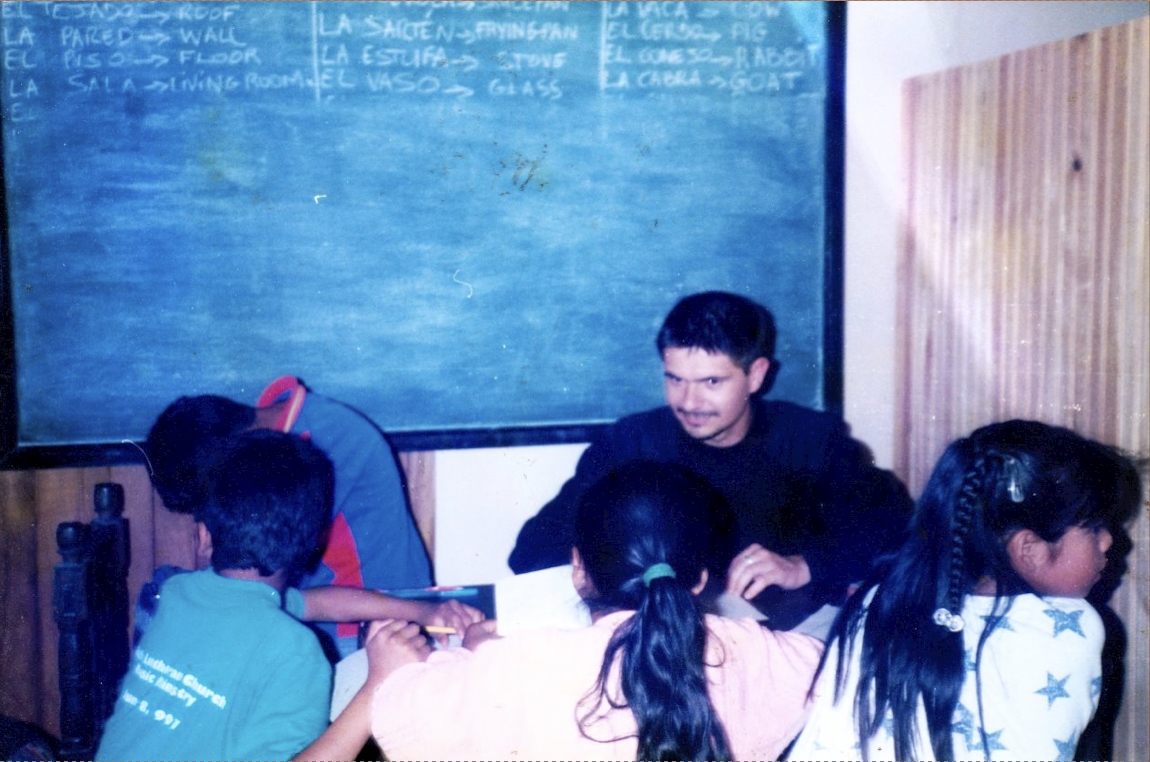
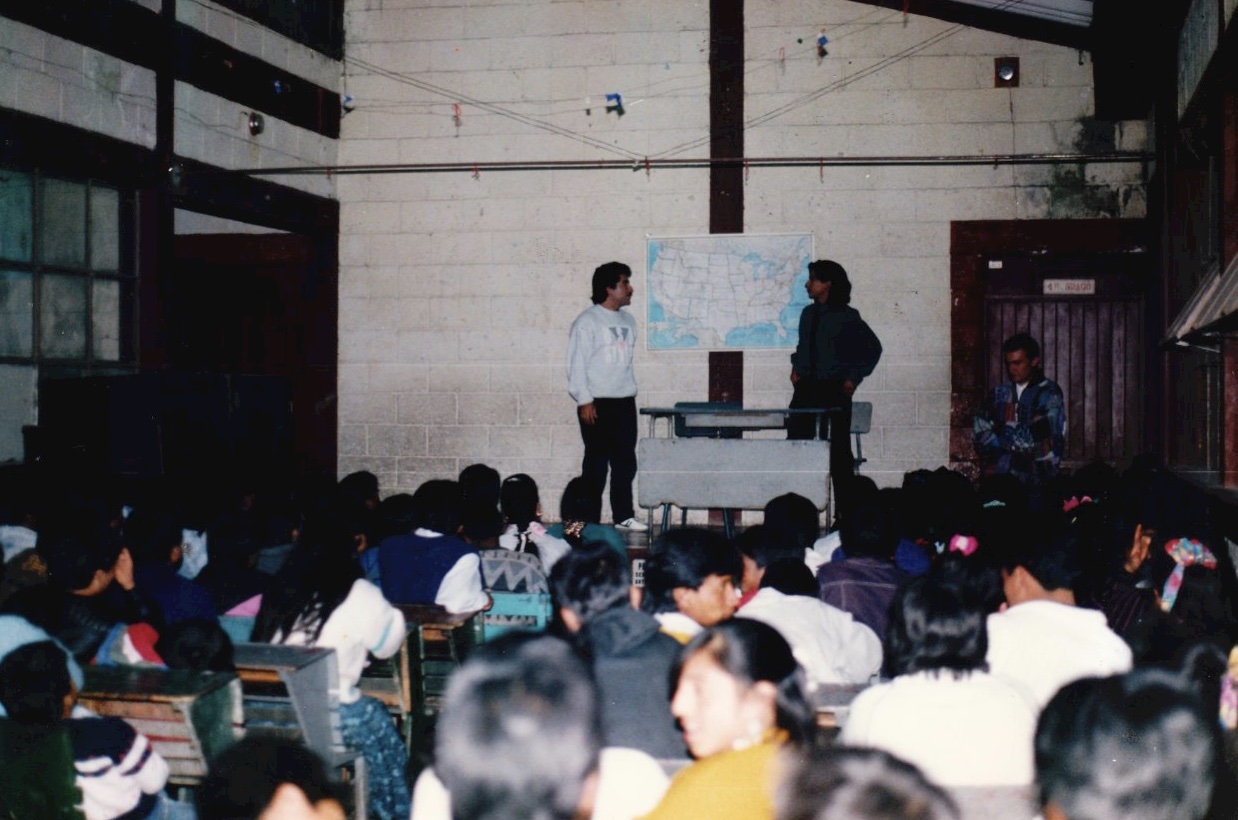
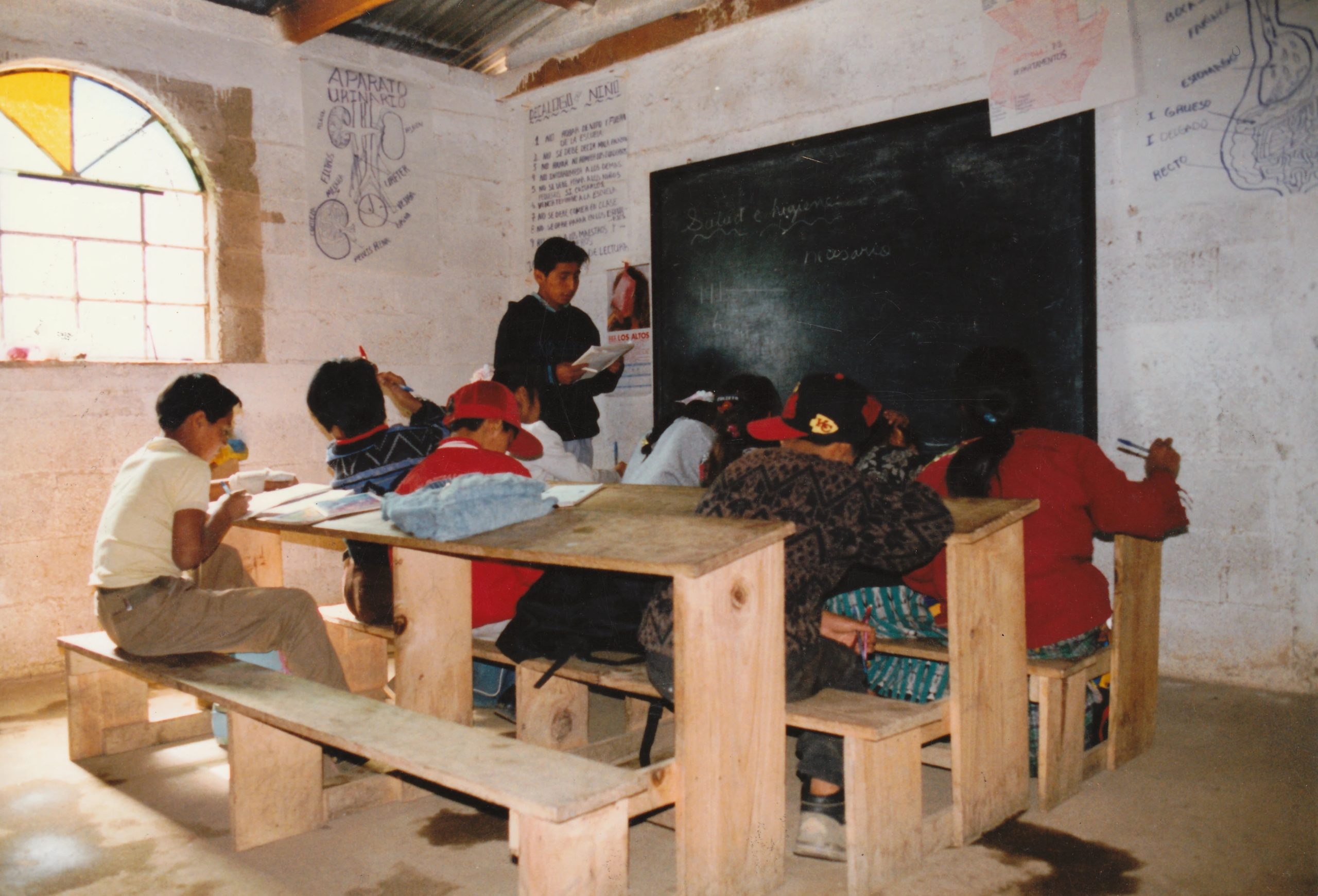
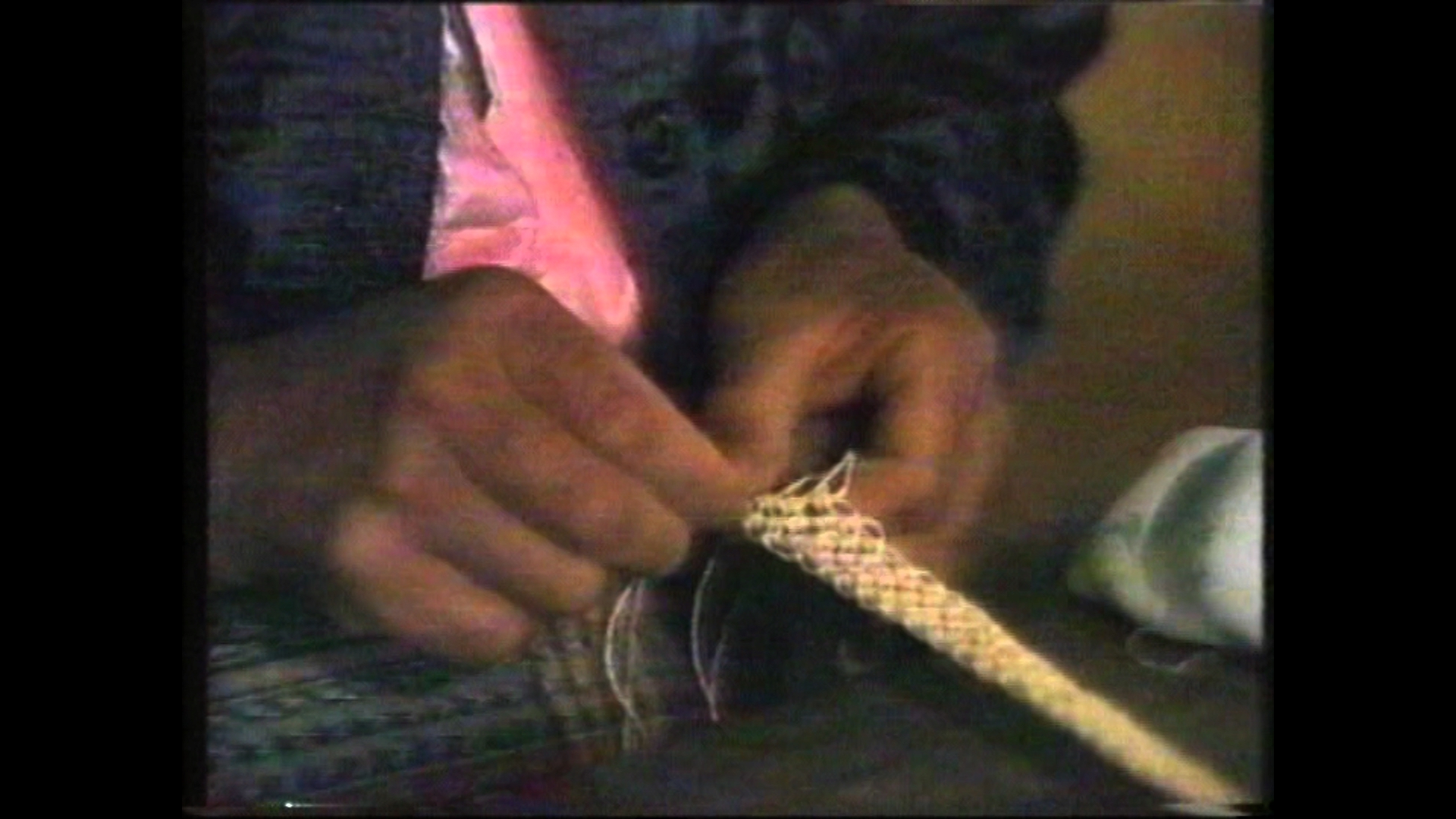
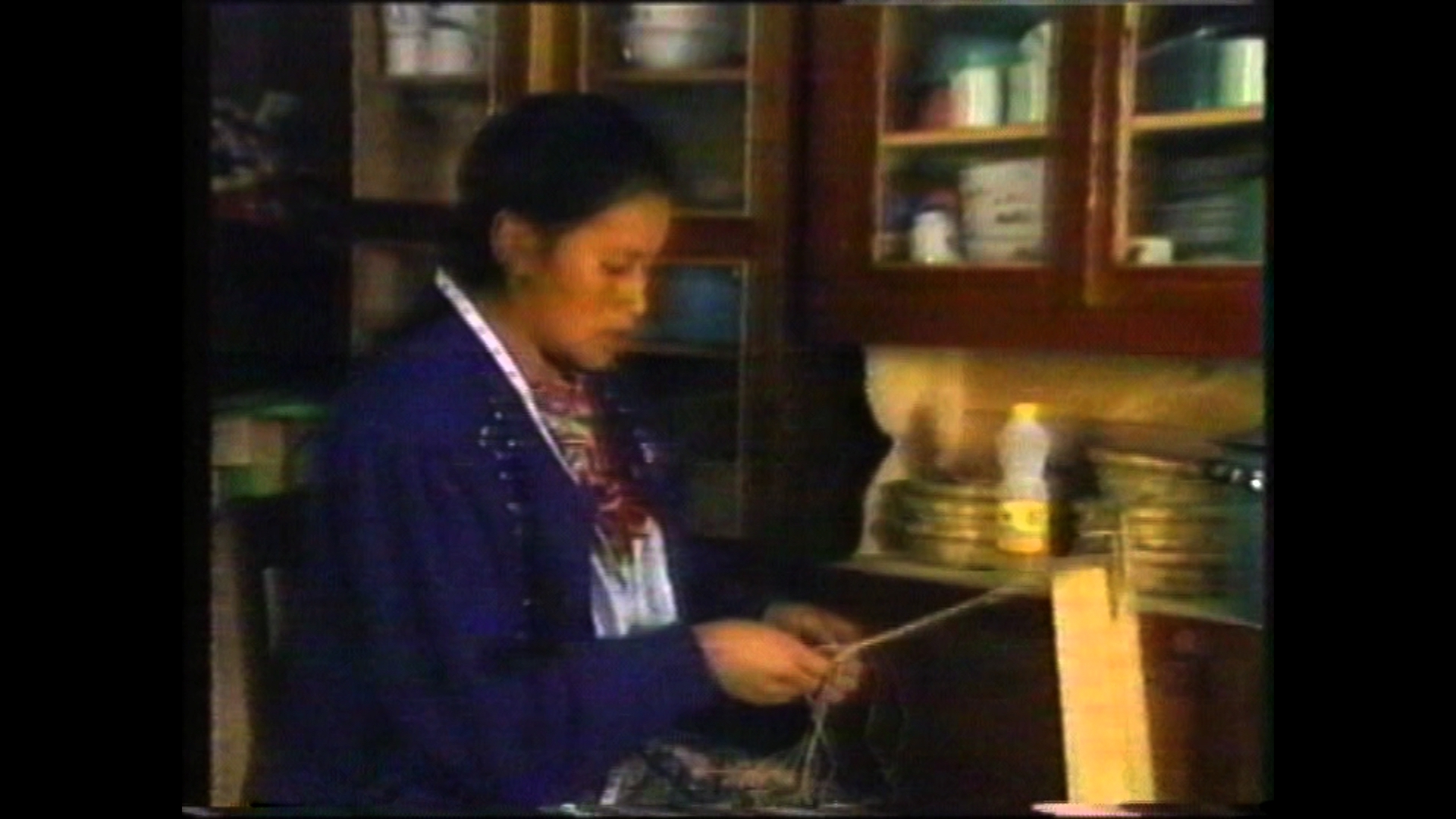
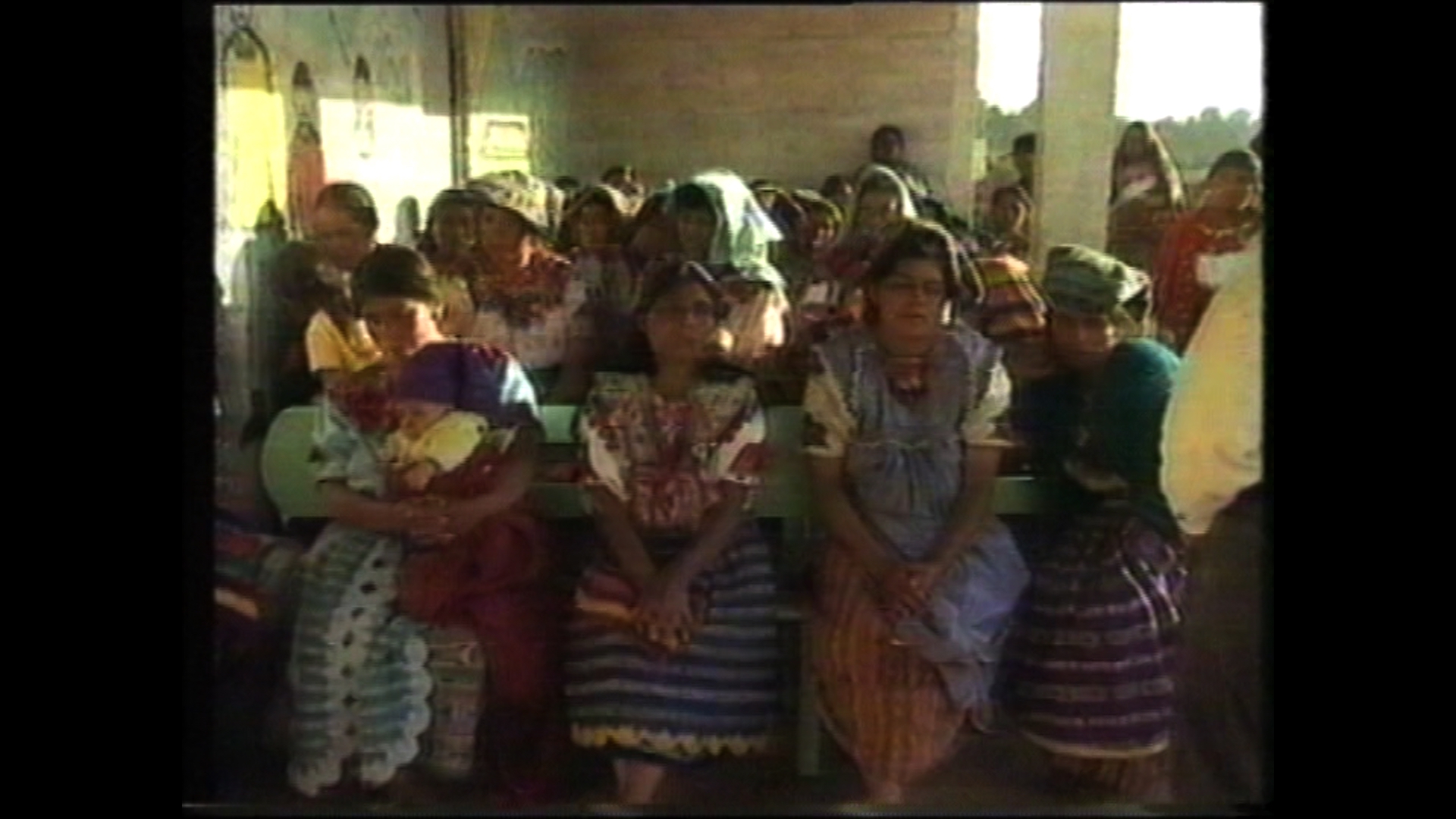
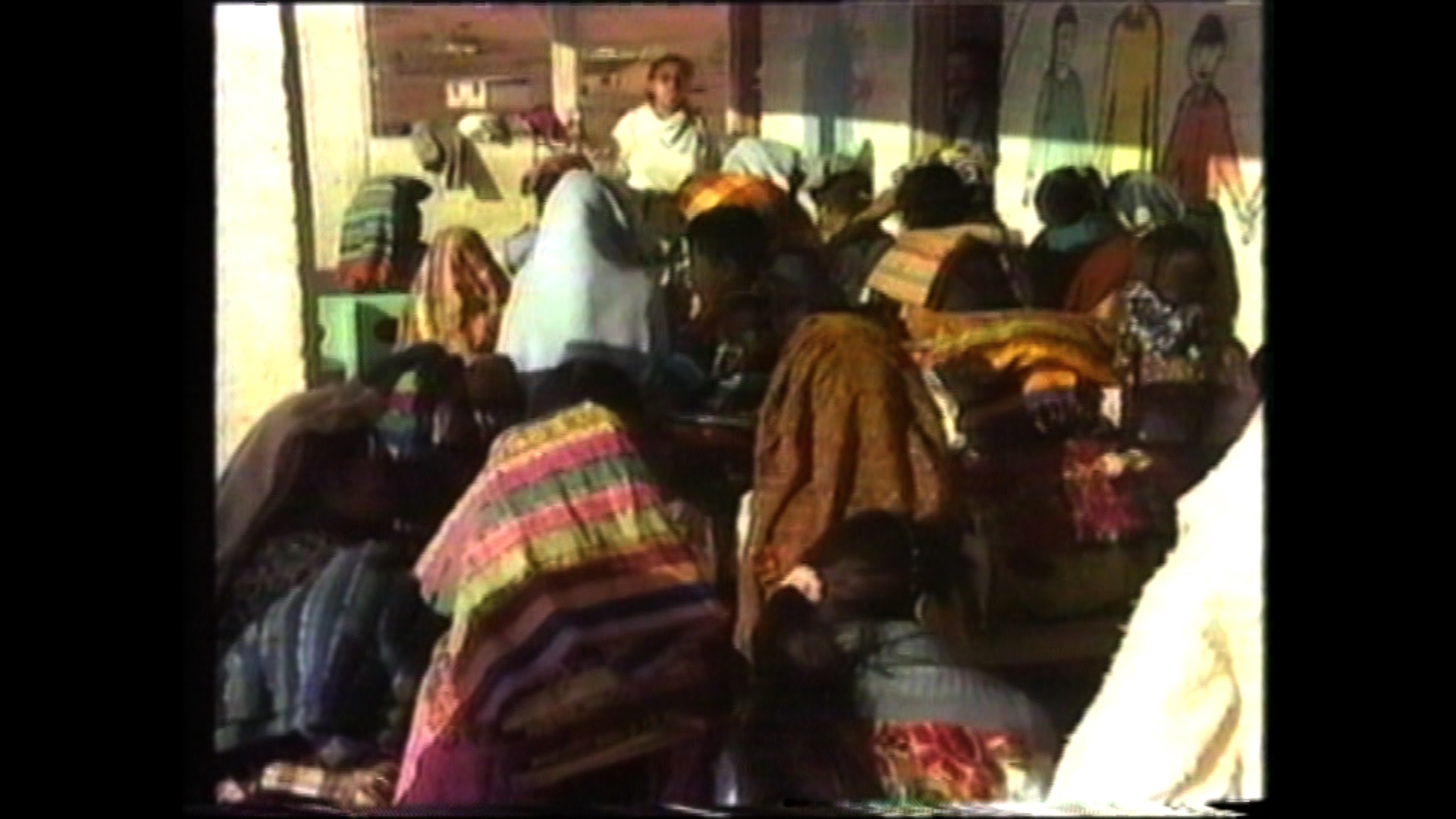
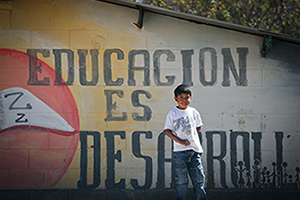

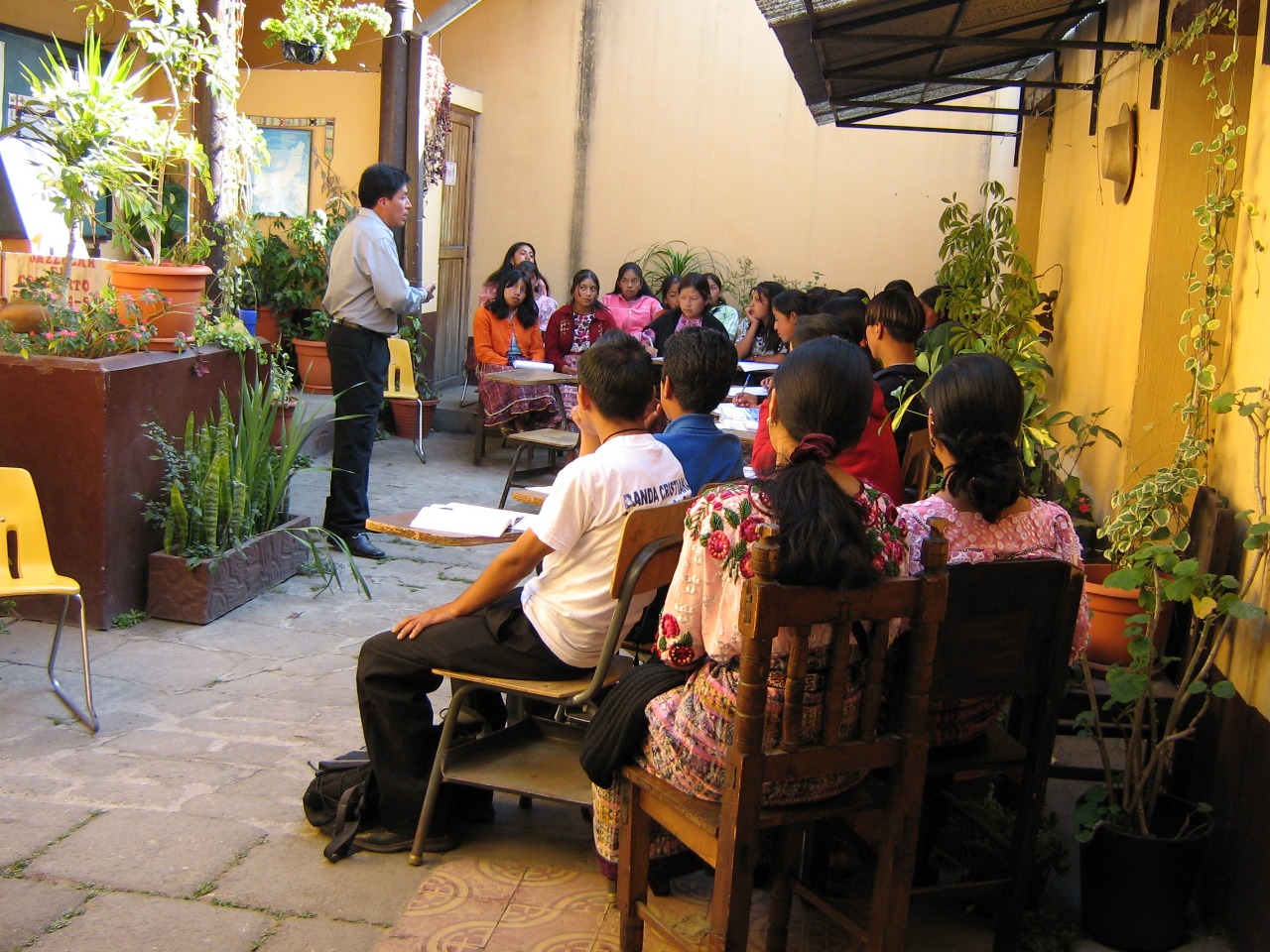
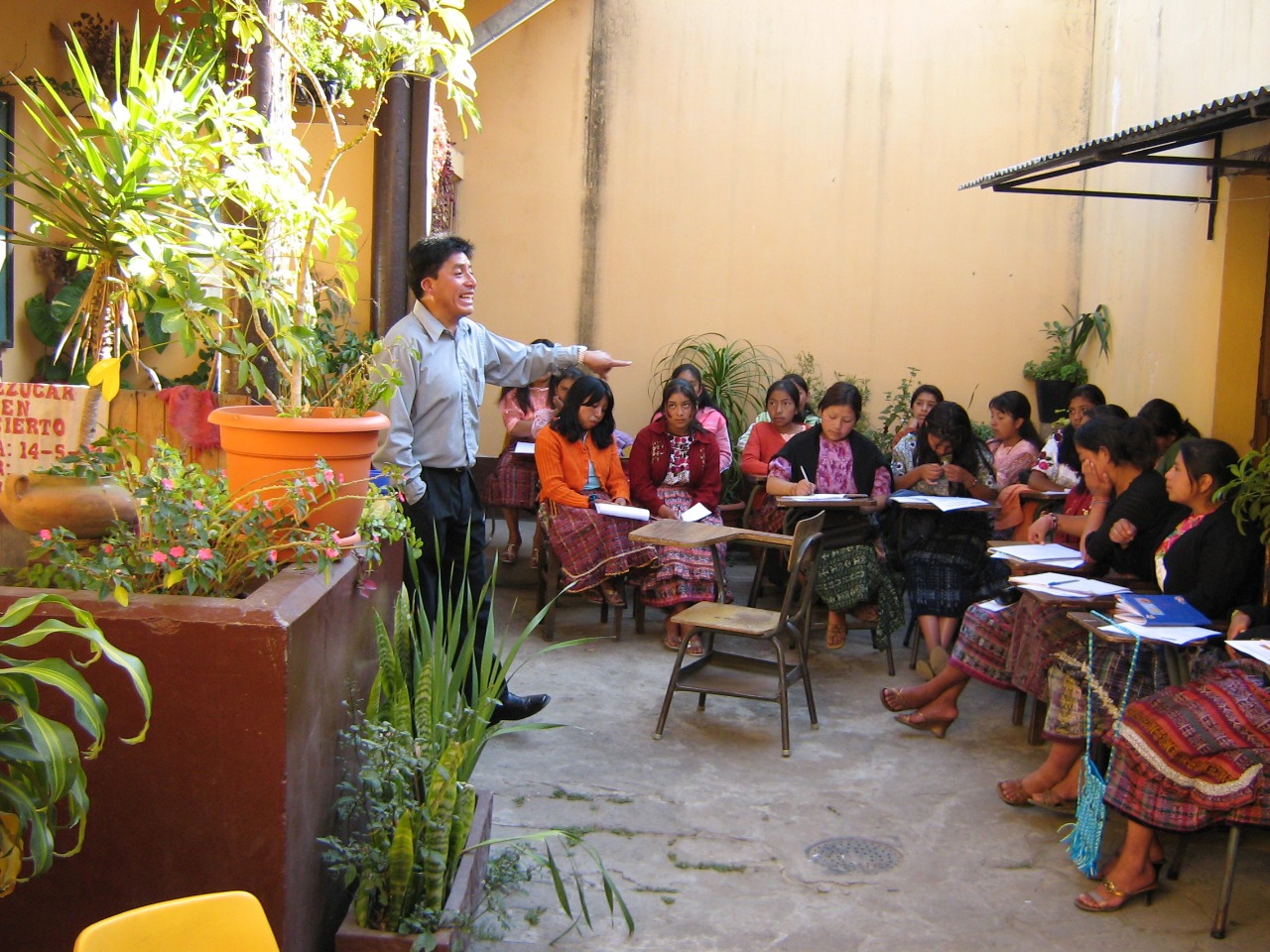
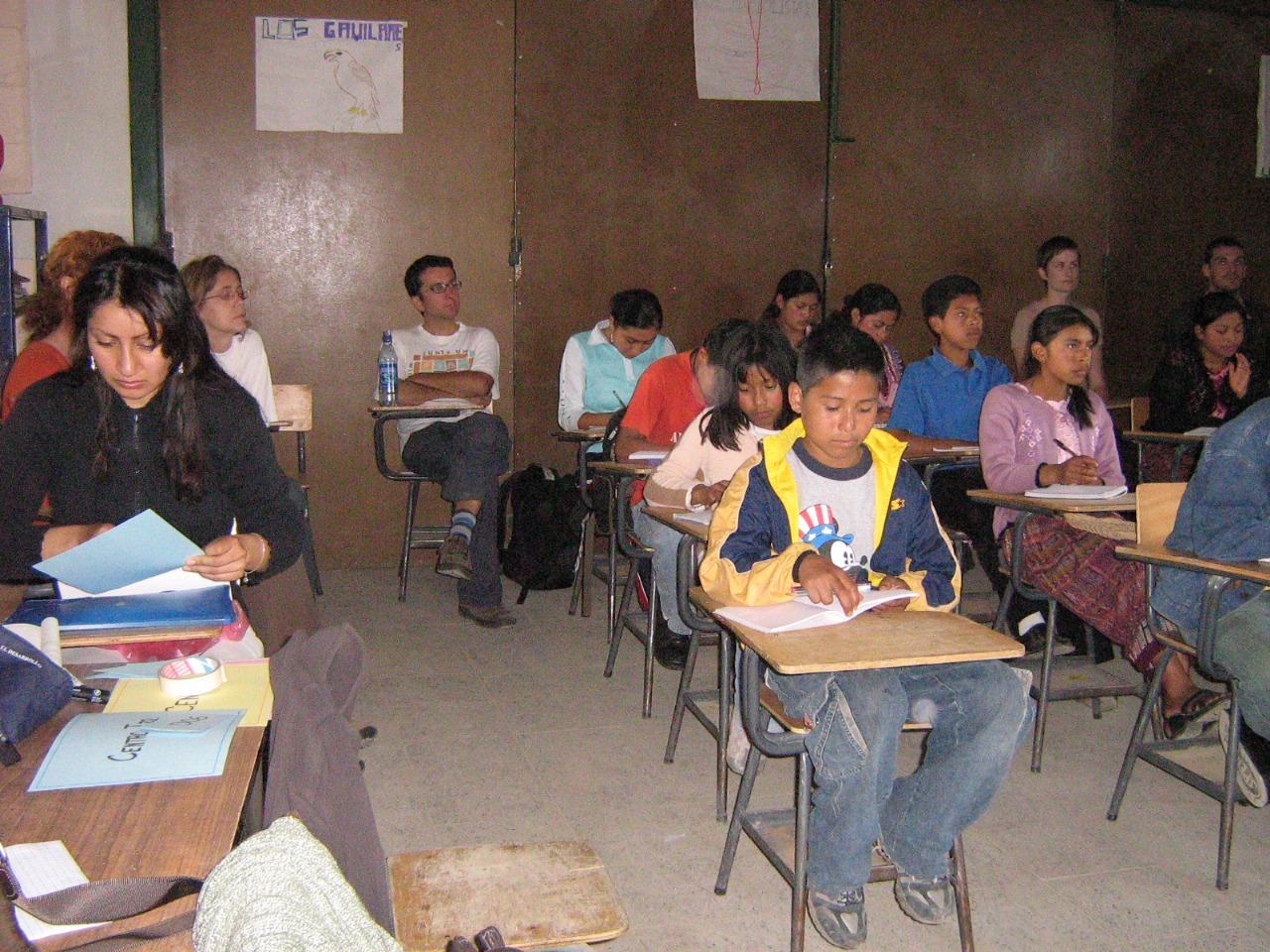
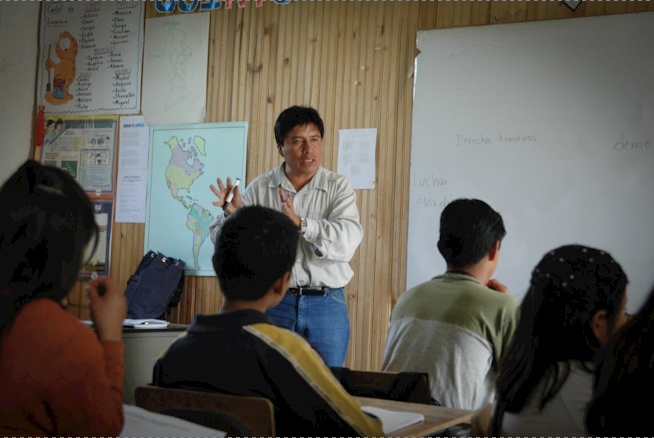
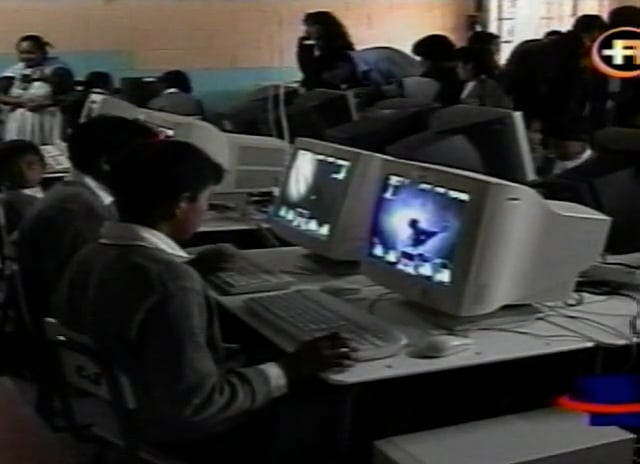


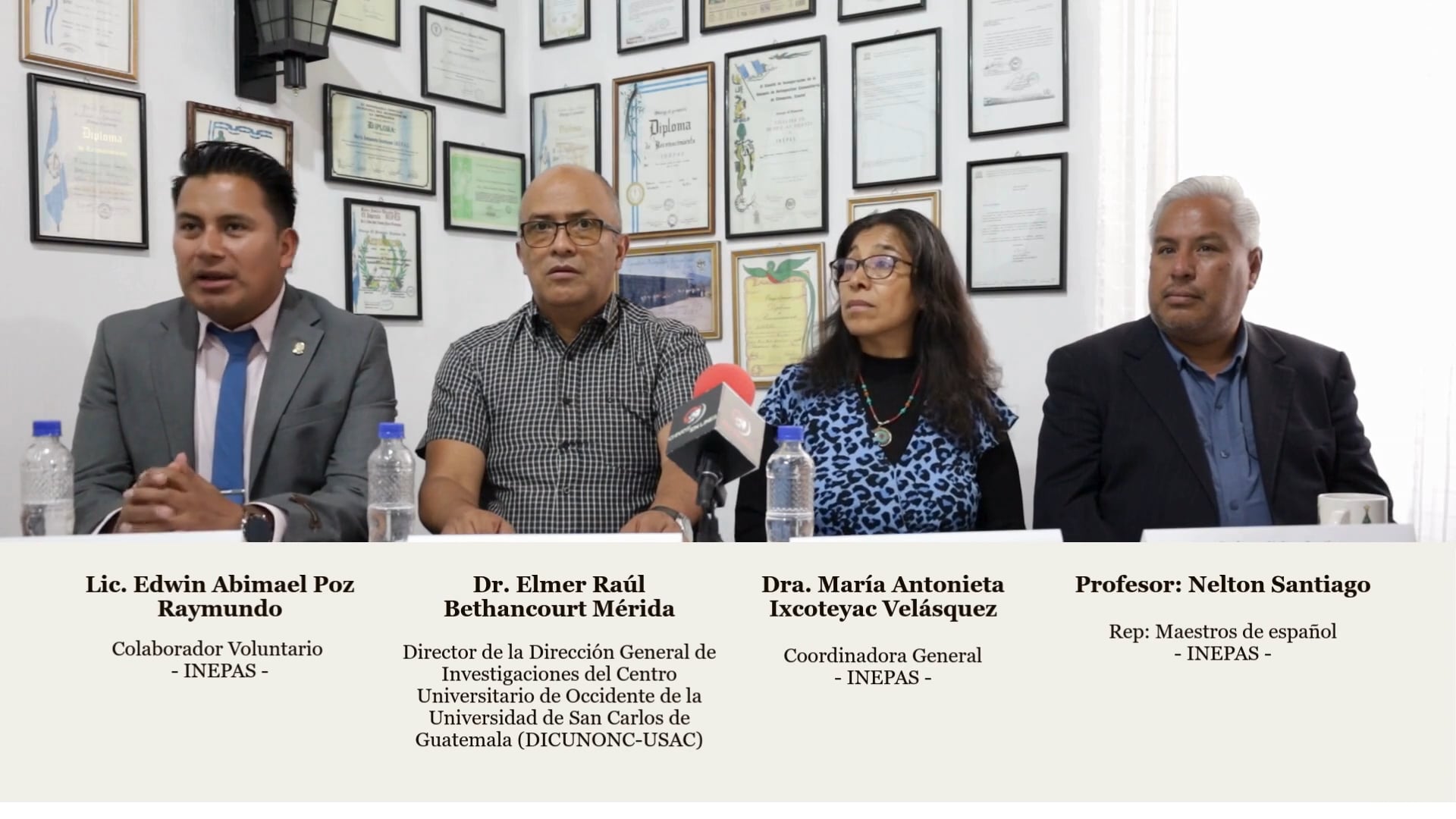
Social and Legal Support Program
This program was introduced in 1998 as a result of the social and legal problems observed while working with rural communities. INEPAS had found that aside from educational issues, there was also a great need to support families in reducing recurring problems such as domestic violence, alcoholism, lack of self-esteem, abuse of human/employment rights and poor nutrition and hygiene.
Objective:
The identification of problems which could affect the development of the family and the community. Above all, it was aimed at creating an awareness of the social problems which could be prevented or resolved.
Contents of the Program:
Types of support provided included: identification and recognition of family problems, home visits, individual meetings, community meetings and reconciliatory meetings. Advice workshops had also been given with the aim of promoting women’s rights, basic individual rights and advising on protection against domestic violence. In cases which involved individuals or families in extreme poverty, INEPAS tried to support them in any way it could, by applying for or acquiring aid from public institutions, financing medical costs or consultations at a reduced fee, or by donating basic necessities.
Advised people in need of legal assistance on how to exercise and defend their rights effectively and fulfil their legal obligations. The cases most frequently dealt with concerned domestic violence, often involving people who only spoke K’iché (a native Mayan language). INEPAS was able to advise and accompany these people, to ensure they were treated fairly and obtained a proper hearing in a court of law if necessary.
The Human Rights Ombudsman’s Office recognizes the outstanding social work of INEPAS for the benefit of the communities.